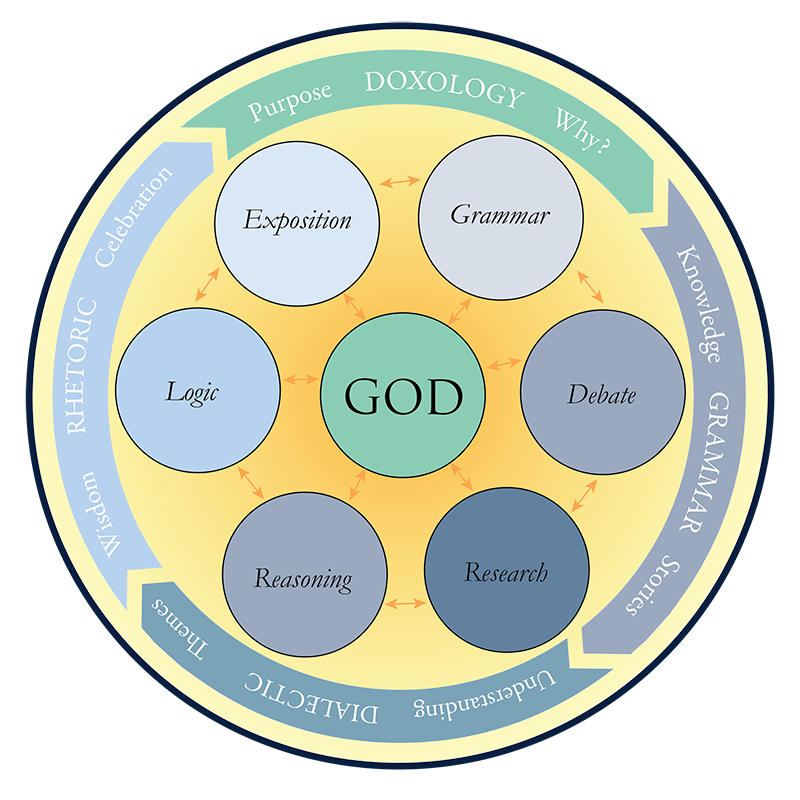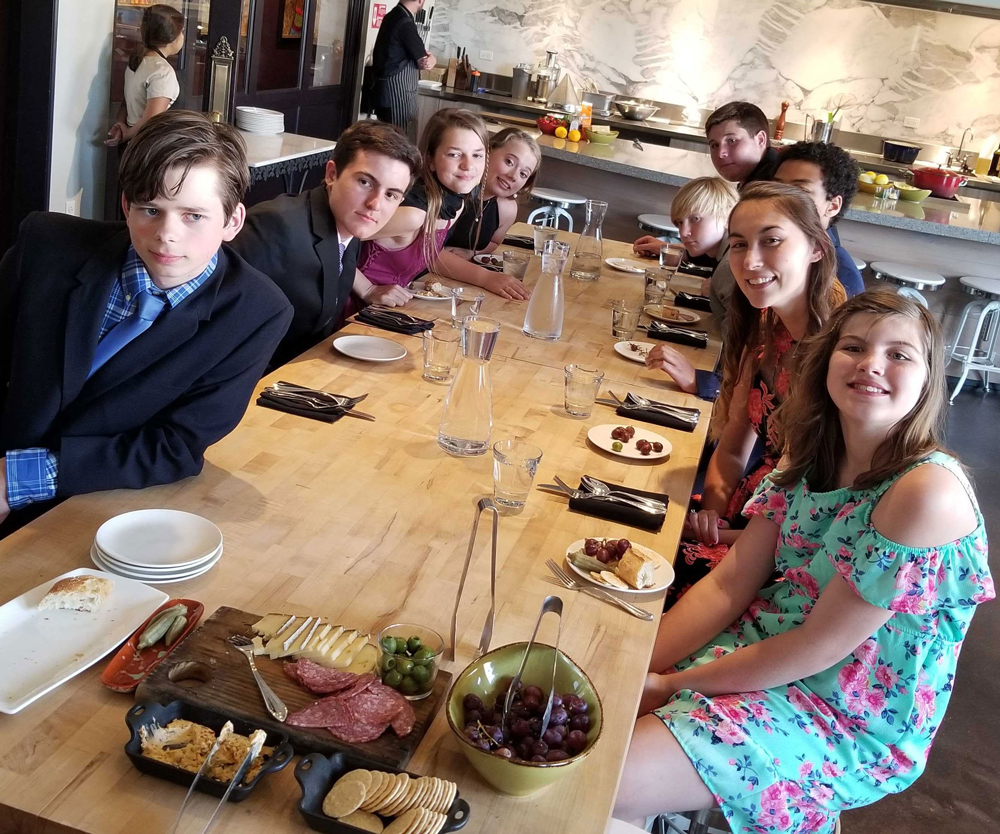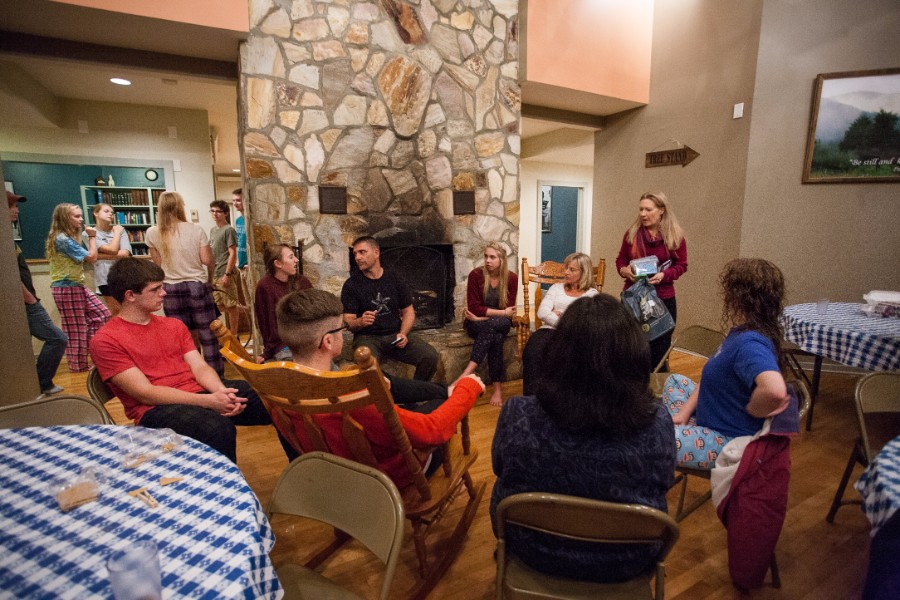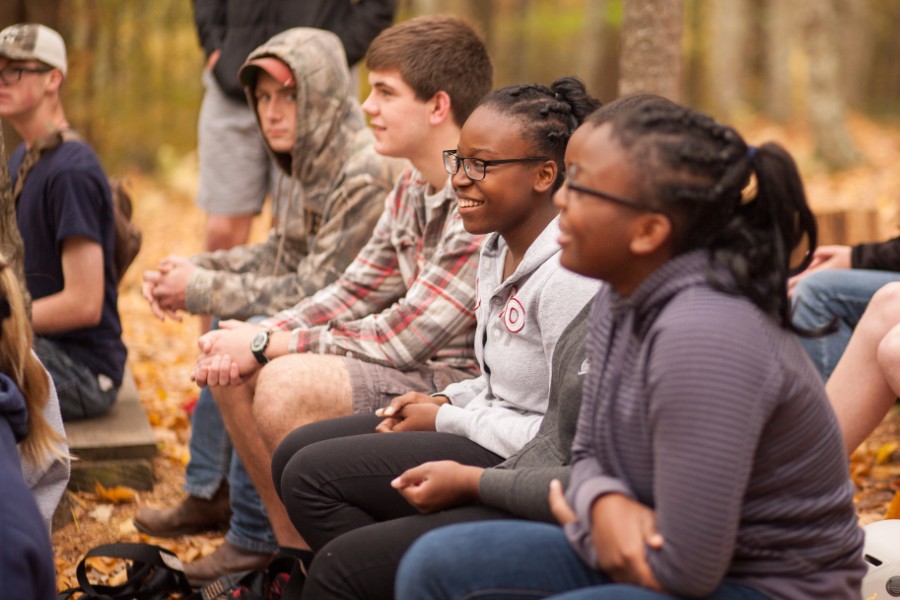
Challenge (ages 12+)
Coming 2021
How will I be able to teach my kids once they get to high school? As students learn how to learn, they develop the skills to learn any subject! As the teacher of your student, you will walk alongside your child as the leading learner.
We offer six Challenge levels that center around the timeless learning tools of the classical model. A parent should determine which level is best suited for their student. Students attend a weekly community day for thirty weeks where a director facilitates the six seminars. Students work from a guide with assignments for each area of study. Although directors facilitate the weekly community time and lead class discussions, parents continue to be students’ primary teachers.
The director/parent/student partnership is a valuable relationship that fosters accountability for all.


Our robust Challenge program stands out from other classical, Christian programs or co-ops for two reasons:
First, a single mentor directs all subjects. Second, students learn the unity of all subjects.
In each program, one highly qualified, experienced homeschooling parent-director partners with students and their parents as a yearlong mentor in all subjects.
Dialectic and rhetoric students need help understanding core subjects, equipping them to discover that all knowledge works together in an indivisible “universe” rather than a disconnected “multiverse.”
Students study six classical subjects, utilizing the learning skill associated with that strand at home while practicing dialectic and rhetorical skills in the weekly seminars.
Directors help point students to the integration of science, history, math, philosophy, literature, and so on, while also pointing students to the plumb line of God’s Word.
The weekly seminars give students additional opportunities to hone skills in exposition, speaking, and debate as well as to explore more advanced topics in research and logic seminars.


- Directors facilitate class discussions, maintain communication with parents and students regarding student progress, and partner with parents to hold students accountable for their course work.
- Parents assist their students in the completion of the course work, encourage and guide students in the development of good self- and time-management skills, and adjust elements of course work as family dynamics dictate. Parents also assess student work and assign grades.
- Students complete the weekly course work in the time required and prepare for and participate in class discussions.
